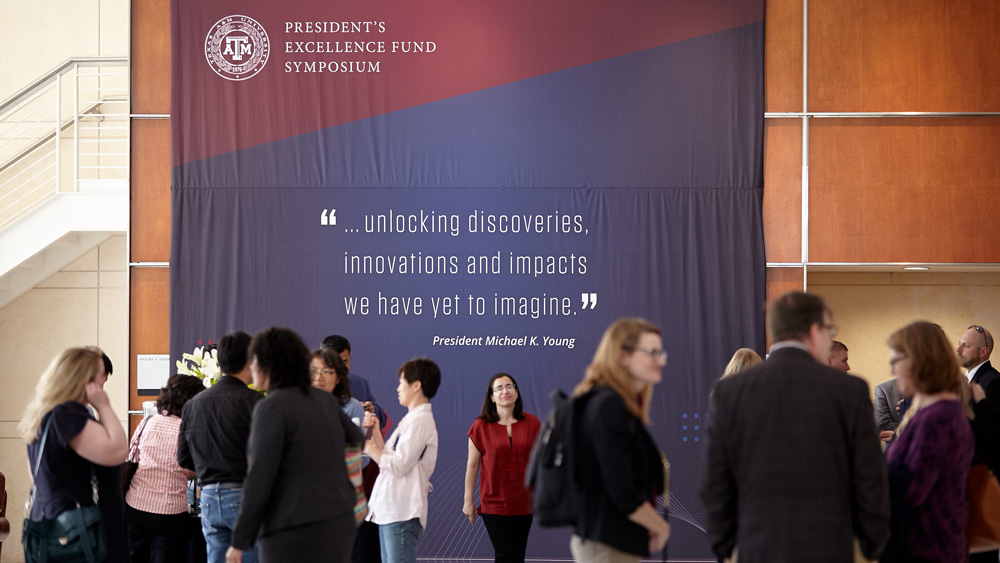
On April 4, eight faculty members from Texas A&M University gave presentations about their research during the inaugural President’s Excellence Fund Symposium at the Walter and Leonore Annenberg Presidential Conference Center.
Each speaker is a leader or a member of an interdisciplinary research team that earned project funding from the first round of Texas A&M’s X-Grants program, an initiative of the 10-year, $100 million President’s Excellence Fund. Three researchers represented the Texas A&M College of Engineering.
For his project, “Point-of-Care Diagnosis and Monitoring of Respiratory Disease Through Exhaled Breath Analysis,” Dr. Ricardo Gutierrez-Osuna, a professor in the Department of Computer Science and Engineering, and his research team are developing a new technology to help individuals who suffer from respiratory diseases such as chronic obstructive pulmonary disease and asthma to monitor their conditions through exhaled breath analyses called Breath-on-a-Chip Spectrometers (BoCS). Unlike current devices that cost up to $3,000, the BoCS will be a fraction of the cost of existing sensor-based monitors, easy to operate and able to monitor multiple biomarkers.
With the planning grant they received for their project “Autonomous Material Discovery and Manufacturing via Artificial Intelligence,” Dr. Satish Bukkapatnam, professor in the Department of Industrial and Systems Engineering and director of the Texas A&M Engineering Experiment Station’s (TEES) Institute for Manufacturing Systems, and his team are investigating the creation of new materials using artificial intelligence to build an autonomous materials discovery framework — Autonomous Materials Scientist (AMS) — that will be able to explore complex materials spaces. As part of the grant, the AMS will drive the discovery of a new class of functional alloy materials. The overall goal of the project is to have the AMS serve as a platform facility to speed up the process materials and manufacturing process discovery for various applications.
Dr. John Tracy, professor in the Zachry Department of Civil Engineering and director of the Texas Water Resources Institute, is part of a team led by Dr. Wendy Jepson, professor in the Department of Geography, that is working on a three-year project to examine desalination and water reuse in urban areas. Jepson was not able to attend symposium due to another engagement, but Tracy presented a video that she put together that explained how the team will examine the various pathways cities are taking to transform their urban water systems.
All the researchers and their respective teams shared $7 million in funding during the first round of Texas A&M’s X-Grants program. They represent 81 faculty members and other researchers from eight colleges, four schools and two state agencies — Agriculture and Life Sciences, Architecture, Education and Human Development, Engineering, Geosciences, Liberal Arts, Medicine and Science, Mays Business School, the School of Law, the School of Public Health, and the Bush School of Government and Public Service, as well as TEES and Texas A&M AgriLife Research.